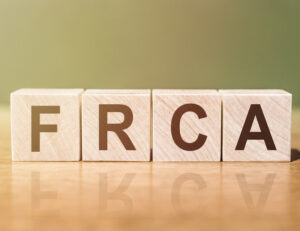Good credit has never been more important than it is right now. As our national economy stares into the eyes of troubling inflation trends and lenders continue to raise interest rates, a low credit score can mean thousands and thousands of wasted dollars. The good news is that we all have the power to heavily influence our credit scores for the better. It just requires a bit of education.
Credit Bureaus Aren’t Perfect
In a study carried out by the Federal Trade Commission, one in four people identified errors on their credit reports that could negatively impact their credit scores. Moreover, many of these individuals were unaware of the errors that were being reported about them.
While many people check their scores every so often, there is more to be seen than the overall number— namely, what’s affecting the score. There could be negative items on your credit history that are causing a drop in your score and as we learned from the above study, they could be erroneous.
Common Credit Report Errors
It’s important to note that any mention of “credit report errors” also includes those that may have no impact on your credit score. Such errors can include name or address misspellings. While it is still worthwhile to address these less-impactful errors, primary focus should definitely be on inaccuracies that hold you back— those corresponding to negative items.
Negative Items
Negative items are essentially just blemishes on a credit report. The most common negative items are:
- Late payments
- Hard inquiries
- Foreclosures
- Bankruptcies
- Repossessions
- Charge-backs
- Liens/judgments
While a simple late payment may not carry the same weighty implications as bankruptcy, no negative item is good. In fact, that single delinquent payment that’s more than 30 days late can knock as many as 100 points off your credit score.
There are times when consumers find negative items on their credit reports that don’t belong to them or were mistakenly reported by creditors even though they had been resolved. In these cases, it is valuable to know what is on your credit report so such errors can be quickly identified and addressed.
Statute of Limitations
When it comes to negative items, there is a statute of limitations. Most negative information generally stays on credit reports for 7 years and can be removed thereafter. Bankruptcy, however, can stay for up to 10 years depending on the bankruptcy type. After an item is past its statute of limitations, it can be removed from the record, likely benefiting the credit score.
It’s important to note that while sometimes such items fall off automatically after 7 years, item removal often requires action from the consumer. Negative items that remain on one’s report long after their statute of limitations can also constitute an error and are very common.
What Can You Do?
Consumers have the right to fair and accurate data. For this reason, credit bureaus accept, review, and take due action on formal disputes issued by or on behalf of the consumer.
Issuing disputes can get a bit tricky, however, due to the fact that there are three major credit bureaus, Experian, TransUnion, and Equifax and the information they report is not always identical. Because of this, many consumers looking to clean up their credit reports opt to hire a credit repair organization to help. Although this is commonly the case, there is nothing a credit repair organization does that a consumer can’t do themself. You always have the option of sending dispute letters and working to resolve issues on your own.
Here is an article published by Experian that talks more about how to dispute credit report information.
Takeaways
Good credit is worth investing some time and effort into and knowing what your credit report says is a big first step. If you identify errors of any kind on your credit report, you have the right to have them resolved with the credit bureaus. Whether you elect to fulfill that task yourself or pay a CRO to help, it is completely up to you.
At Consumer Credentials, it’s our job to provide you with the credit and criminal background insights you need to make the best possible decisions for the future.




